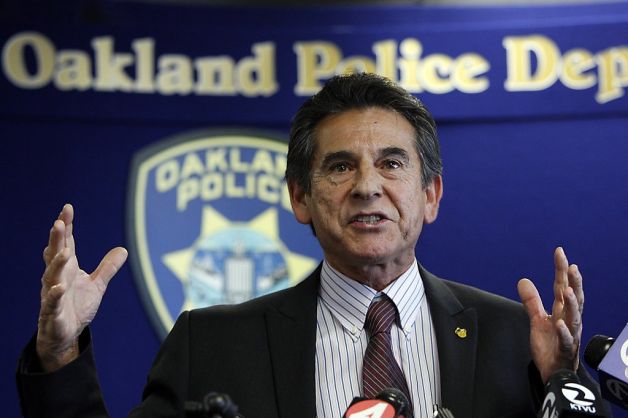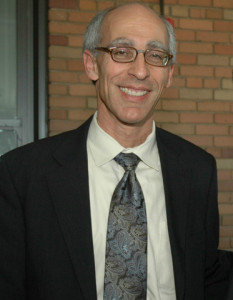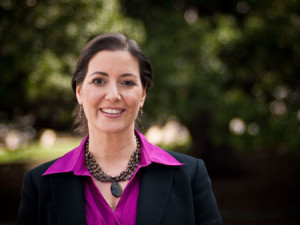Disputes Continue Over Police Accountability, City Ballot Measures
Jul 11, 2014
By Ken A. Epstein.
Community members continue to express anger and frustration toward the Oakland City Council as it moves forward with plans to put several measures on the November ballot though it is not considering a community-backed measure to create a police oversight commission.
“The (community) coalition is definitely not turning away. Instead of asking the City Council, we will opt for a petition drive
to put the measure on the ballot in 2015 or 2016,” said Rashidah Grinage, a representative of the community coalition that wrote the police accountability measure.
“We’ve been talking to all the councilmembers and trying to work with the city (staff) since February. The council and the city’s attorney had plenty of time to review this – they just didn’t do it,” she said.
The city found the time to support councilmembers’ pet issues, she said. “There’s a clear double standard.”

“When (the issue) does anything that provokes a confrontation with the OPOA (Oakland Police Officers Association), the city balks. It stands down,” Grinage said. “The city has never found the wherewithal to stand up to this police union.”
Noel Gallo was the only councilmember who fought to put the police accountability measure on the ballot. Dan Kalb said he was willing to support it, and Lynette McElhaney said she would back it if it were not on the same ballot with the successor to Measure Y.
Wishing to set the record straight, Libby Schaaf said the measure as written was not ready for the ballot because it had not been analyzed and evaluated by city staff.
Pat Kernighan said there was no need for it since the police department is now making progress.
Councilmembers appear united in their desire to pass the new Measure Y, a tax that would generate $22 million a year to pay for 60 police officers and programs that support young people.
While opposition has not yet become public, a number of community members are raising concerns that the city wants more money for police but balks at supporting community demands for strengthened police accountability.

Criticisms are also being expressed that the measure generates millions of dollars a year for a handful of nonprofits, but the city has done little to guarantee these programs produce results.
In addition, while the measure pays the salaries of officers who are supposed to be community policing Problem Solving Officers, the new measure leaves the final decision on how the money will be spent up to the police department.
The council is scheduled to vote next week on a measure to put a new Public Ethics Commission on the ballot. Sponsored by Councilmember Dan Kalb, the commission would have the authority and resources to enforce election campaign contribution limits and other campaign contribution regulations; examine Sunshine Ordinance, public records and transparency complaints; handle conflict of interest issues; and protect employees who are whistleblowers.
The new commission will cost roughly $900,000 a year and have seven staff, compared with the existing body, which costs about $300,000 and has two staff.
Councilmember McElhaney has doubts whether there is the time to examine the measure, whether there is funding available, whether the proposal has had enough community input and whether that input has been sufficiently diverse. She also wants to know if the measure conflicts with anything in the City Charter.

Responding, Kalb said the public ethics commission measure “has had strong community input development” and diversity among the community members who worked on the proposal and who have served on the commission in the past.
“We ‘ve gone through very extensive analysis, both external and internal,” he said.
“Our-nine member working group includes two African Americans, two Latinos and one Asian American,” he said. Besides consulting many individuals, he said, the group also talked to local organizations – Oakland Rising, Oakland Community Organizations (OCO) and Make Oakland Better Now.
The Post erroneously reported last week that the Public Ethics measure and the Libby Schaaf’s redistricting measure skirted the city’s committee and staff review process. Both proposals went to the council’s Rules and Legislation Committee.
“Our office began consultation last year with both the City Attorney’s office and the City Administration, in order to thoroughly vet budget, legal and policy implications,” according to Councilmember Kalb’s office.
“This process began well before the measure was even drafted. We worked with the City Attorney’s office for months to craft the drafting. We also requested staff budget analysis of the proposal far in advance of consideration of the measure by committee,” said Kalb’s office.
Councilmember Schaaf has been working for about a year with community members on her redistricting measure. It would take redrawing of council districts out of the hands of the City Council and create an independent redistricting commission, mirroring the state’s commission.
“This is a good government reform that puts the power of voting rights into the hands of the voters and not in the politicians’, who have an inherent conflict of interest,” Schaaf said. “It has to do with the preservation of voting rights.”
Under this proposal, the city would choose the members of the independent commission through a number of steps. First, the council would set criteria for outreach, and the city administrator would conduct the outreach.
The resulting pool would have to contain at least 40 applicants, including at least three people from each district, and reflect the racial, ethnic, geographic and economic diversity of the city.

Secondly, the pool would be reduced to 30 applicants reflecting the city’s diversity, chosen by a panel of three – a retired Oakland judge, a law or public policy graduate student and a representative of a good government organization, who would be selected by the City Administrator based on City Council criteria.
Third, a random drawing from among the 30 applicants would be conducted to pick six commissioners.
Finally, the six commissioners would appoint the remaining seven commissioners. These appointments must reflect the city’s diversity, and there must be at least one commissioner from each council district.
The process could be conducted every 10 years, as the population numbers of council districts shift.